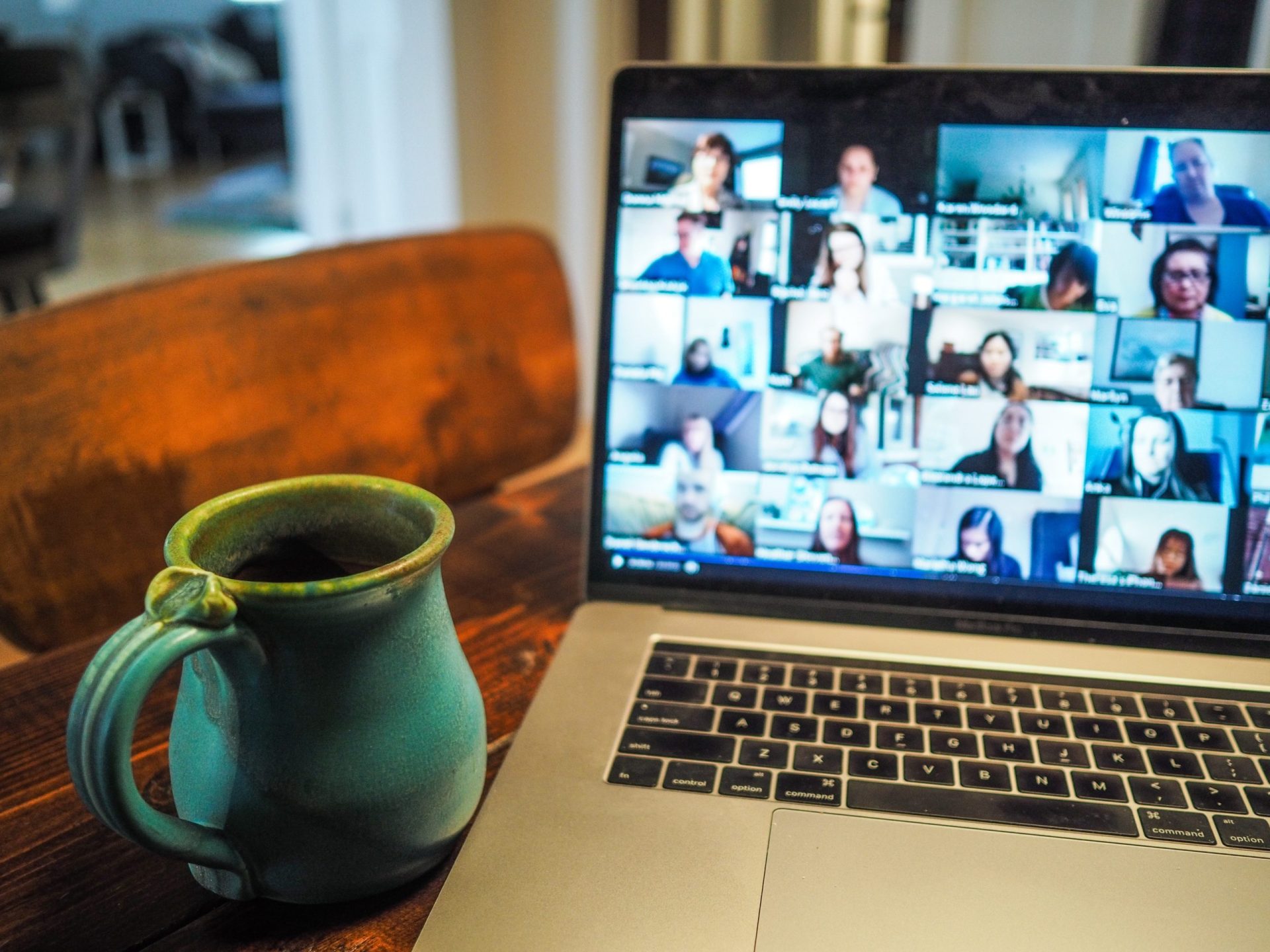Reflections from our latest research on alternative social media platforms.
Digital Resilience
Reflections from our online event series: restoring information ecosystems
Takeaways from conversations about “information deserts”, gender injustice, and climate and environmental justice in the context of info ecosystems in Latam and the Caribbean.
Reading list for restoring information ecosystems: recommendations from our gathering in Santiago
From our recent “informationa ecosystems” gathering in Santiago, a list of recommendations and inspiration!
New report: Exploring a transition to alternative social media platforms for social justice organizations in the Majority World
What would it take for a critical mass of social media users to move from mainstream to alternative platforms?
Elevating digital inclusivity
How do we achieve digital inclusivity that goes beyond just basic access? Explore The Engine Room’s newly-launched Digital Resilience Hub.
When your tech tools just aren’t working for you any more
How to identify when it’s time for a change, how to choose tools that align with your evolving needs, and strategies for smooth transitions.
Looking back at 85 (!) light support partnerships in 2023
We reflect on the questions and challenges that social justice organisations approached us with in 2023.
Strengthening foundations with CIPESA
Read about our partnership with the Collaboration on International ICT Policy for East and Southern Africa (CIPESA).
10 inspiring initiatives fighting online political violence against women in Latin America
A list of initiatives fighting online violence against women in politics in Latin America
Ensuring Communication for Social Justice Organisations with Unstable Internet
Tips for better calls in low-connectivity situations
Creating technical documentation for non-technical people: tips from our team
Tips for creating documentation that supports your team as you adopt tech tools.
An evolving commitment to feminist digital infrastructures
In our time of climate emergency and growing efforts to erode democratic relationships and information ecosystems, perspectives around equity, enjoyment and care help us reimagine futures that nurture and regenerate relationships and natural ecosystems.
Staying Online During Internet Shutdowns
As part of our efforts around mapping digital resilience trends, challenges and opportunities, we’ve seen the impact that digital rights threats can have on civil society.
What do we think about when we think about digital resilience?
More than a jargon-y definition, digital resilience should be an achievable reality for social justice organisations.
Building digital resilience is an ongoing effort
Takeaways from our community call in December 2022, to discuss the digital resilience challenges we (and our partners) are working through.
Weaving tech into human rights work: case studies with Amnesty Tech
Working with Amnesty Tech, we looked at how Amnesty International has woven a critical understanding of technology into their human rights defence work.
Mapping digital resilience challenges in social justice organisations: learnings from our partners
Earlier this year we started a new project to examine and strengthen our digital resilience, in an effort to further integrate social justice principles into our tech choices and practices and deepen our capacity to support our partners. What is digital resilience? We use the term “digital resilience” to refer to a set of practices […]
Working on our digital resilience: video conferencing tools
Earlier this year we started a new project to examine and strengthen our digital resilience. In this blog post, we’re sharing some reflections about the new tools our team is testing out!
What we’ve learned through our support for organisations working on building digital communities
Our team has supported hundreds of social justice organisations to use tech and data. One clear trend we’ve seen over the years is a consistent interest in building online communities.
Adopting new tech: How to give your team the best chances of success
Introducing new platforms and tools is a challenging process for many organisations, but there are steps you can take to make it smoother.
How to think about tech when you don’t have time to think about tech
Rethinking an organisation’s use of tech and data does take quite a bit of time (and resources!). But, there are low(ish) hanging fruits that you can start tackling.
Report: Intersectional approaches to data and digital rights advocacy during the pandemic
Read our research report exploring intersectional collaboration between social justice communities and data and digital rights (DDR) communities during the pandemic.
Building digital tools in social justice organisations: What to consider before getting started
What to consider before building a tool from scratch.
Social justice + digital rights during Covid-19: barriers to collaboration
Barriers to collaboration between social justice groups and DDR groups.
Tech Tools for Human Rights Documenters
A resource for human rights documenters, tool developers and funders.
Bringing political values into practical tech decisions: learnings from our partnership with FRIDA
We spoke with Ledys Sanjuan, Advocacy, Communications & Tech Manager at the FRIDA Fund.
Technology in the service of justice
How The Engine Room aspires to approach our own technical choices with an explicit focus on justice and anti-oppression.
Using Uwazi to build a database documenting institutional violence
Learnings from our work with CELS reconceptualising and publishing an exiting database of cases.
Tech tips for working from home when everyone else is too
Tips and tools for weathering the work-from-home part of this storm.
Sharing (and learning from) trends in security threats and attacks
A guide for building attack archetypes & case studies.
Developing an impact framework for organisational security: What we learned
We’ve been working on a project with Internews to support organisational security practitioners working with human rights organisations. One aspect of the project focuses on measuring impact.
A (new!) toolkit for organisational security practitioners
Tools for orgsec practitioners, security researchers and others.
Weaving research learnings into an organisational security community revamp
Explore our research and digital security toolkiit
Working on tech and human rights during a pandemic: what challenges are organisations facing?
Takeaways from our community call in May 2020.
Making public interest technology safer for human rights defenders
Options for organisations creating public interest technology that want to ensure the software they develop undergoes a rigorous security audit.
Navigating the current digital emergency
We’re seeing that many civil society organisations, particularly those working in service provision or public-facing roles, must reimagine their programmatic objectives and goals quickly.
Reconnecting with your purpose, reaching for impact
Reflections from our partnership with Hiperderecho, a Peruvian non-profit defending rights and freedoms in digital spaces.
Understanding people before creating new tech
Using data and technology in social justice work is about understanding the lives of the people you’re working with and then figuring out what type of work you can do to best serve those communities.
What comes next? Building a resilient and accountable digital ecosystem
In the rush to convert to digital, we should keep a few important things in mind.
What digital tool re-use looks like among UK charities
This year, we researched how digital tools are re-used in the UK charity sector.
Stop assuming, start questioning
One way to hit the needed balance of ambition and practicality is by starting with the basics: understanding and defining the problem you want to address.
Share more, build less
We see a lot of organisations looking for support with a technology project. The majority we see fall short of addressing project needs and don’t tap into the power of sharing and collaborating.
Using what we know: How to ensure tech projects meet the brief
This post was originally published on the Making All Voices Count blog.
Towards a safer internet: feminist guides and resources
We are celebrating International Women’s Day with a compilation of resources, guides and organisations that help women and trans* persons use digital technologies in a safer way.
Alidade: an interactive tool to help you bring technology strategically into your project
We created Alidade – an interactive guide that helps social change organisations ask the questions that can help them decide what kind of technology tool would fit with their project.
LevelUp your digital security training
LevelUp features resources, advice, and insight for becoming a better digital safety trainer and better prepare for, manage, and evaluate events. The customizable LevelUp Trainers’ Curriculum has been field-tested to create the open and participatory dynamic found best fit for a digital security training environment.














































